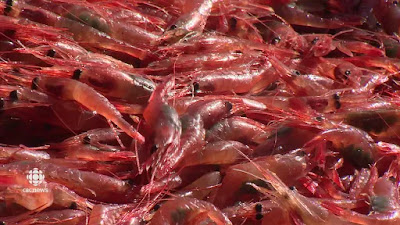No way - Power Struggle Part 11 of 12
“First
of all, I haven’t read the Constitution and I’d rather have to seek
constitutional advice, but the last thing the federal government wants to do
and I think the last thing you as a citizen want to do is to see the federal
government overpower the right of Canadians in their provinces.”
—
Newfoundland MP John Efford in 2005, when he served as federal minister of
Natural Resources.
Eleventh in a 12-part series.
The defunct weekly
provincial newspaper, The Independent (2004-2008),
carried out extensive research and investigation into the Upper Churchill. From
the contract’s signing in the 1960s, to the realization of its incredible
lopsided nature towards Quebec, the shadow of the deal looms today over the potential development of Labrador’s Muskrat Falls. The following is the 11th
in a series of 12 articles published in The Independent.
Jeff
Ducharme
The Independent
Feb.
6, 2005
MP
John Efford, the province’s point man in the Liberal cabinet, says Ottawa won’t
step in to help Newfoundland and Labrador push a power corridor through Quebec.
Since
Churchill Falls first became an issue between the province and Quebec in the
1960s, Newfoundland and Labrador has been trying to convince Ottawa to allow it
to build power transmission lines through Quebec as a means to deliver
hydroelectricity to lucrative U.S. markets, but with no success.
“Are
we going to tell the people of Canada, or the people of Quebec, or the people
of Newfoundland, you must do this — no,” Efford tells The Independent.
“The
only answer I can give you today — I would be willing to be part of the
discussions, but I can’t tell you, I’m not going to say that I would make sure
it happens, or I could make it happen.”
Since
1972, Hydro-Quebec has gathered an estimated $23.8 billion in revenues from the
sale of electricity under the infamous upper Churchill contract.
Only
three per cent of the profits that Hydro Quebec has raked in — approximately
$680 million — have landed in Newfoundland and Labrador coffers.
The
provincial government has been criticized for signing the Upper Churchill deal
in the first place, but some contend the federal government left the province
with little choice because it wouldn’t step in and force the corridor through
Quebec on constitutional grounds.
Clause
No. 92 of the Canadian Constitution suggests the feds could force Quebec’s hand
in allowing a corridor through the territory “for the general advantage of
Canada or for the advantage of two or more of the provinces.”
Ontario
has already expressed interest in power from the lower Churchill.
“First
of all, I haven’t read the Constitution and I’d rather have to seek
constitutional advice, but the last thing the federal government wants to do
and I think the last thing you as a citizen want to do is to see the federal
government overpower the right of Canadians in their provinces,” Efford says.
The
Upper Churchill contract, which expires in 2041, is a wound that’s festered in
Newfoundland and Labrador since the deal was signed — even school children know
the details.
With
the Lower Churchill once again on the provincial government’s to-do list,
Quebec still stands in the way.
The
so-called Atlantic route (across the Strait of Belle Isle, down the Northern
Peninsula and across the Gulf of St. Lawrence) had been explored as a means to
bypass Quebec, but critics say it would be too expensive and inefficient.
That
leaves Quebec.
“…
I’m willing to work with the premier and the government of Quebec (in) my
capacity of Natural Resources to see what needs to be addressed,” Efford says.
At
the same time, he knows there has been no shortage of premiers from this
province who thought they could force a corridor through Quebec by appealing to
Ottawa and using constitutional arguments.
From
Joey Smallwood to Brian Peckford, they all failed to convince Ottawa.
In
the 1980s, the government of then-premier Peckford tried to negotiate a deal to
develop and then sell power from the lower Churchill.
The
Quebec government wielded a heavy hand — as they did during negotiations
over the upper Churchill — and railed against suggestions that they should
allow Newfoundland to transmit power through Quebec and into the U.S. market.
The
federal government refused to give Peckford, who felt the province had the
constitutional right to transmit electricity through Quebec, a commitment that
it would step in.
Efford
says the mandate of Canada has always been to “work co-operatively” within
Confederation.
The
fact that Canada is facing an energy shortage could further another
constitutional challenge by Newfoundland and Labrador.
“There’s
such a massive shortage of power, the co-operation between the provinces needs
to happen,” admits Efford.
“We
don’t have a grid that connects the west to the east or even the east to
central Canada and those things are under discussion.”
Hydro-Quebec’s
current transmission lines that run into the United States are said to be
already operating at maximum capacity. The cost to construct another line is
approximately $1.7 billion.
The
provincial government spent $70 million in the 1970s on construction of the
Gull Island project on the lower Churchill River before the 2,000-megawatt
development was put on hold due to financing and marketing problems.
The
province has said that power generated from the smaller, 824-megawatt Muskrat
Falls project (also on the Lower Churchill) would likely be kept for the
province’s own use.



Comments